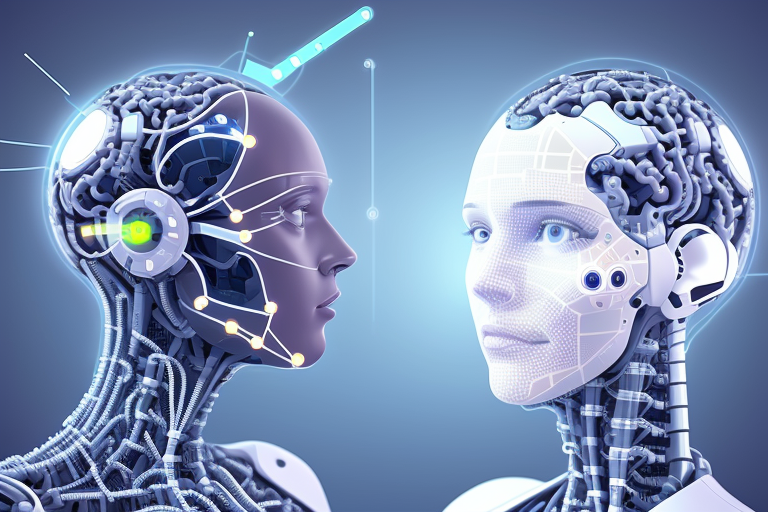Dear guest!
Generative Artificial Intelligence (GenAI) has gone public since OpenAI released its ChatGPT 3 on November 30, 2022. You know it, tested it, and it is now likely that you are using it productively for your work.
As I am into Human Resources (HR) and Analytics (People & HR Analytics, Digital Assessment) any new content that deals with Artificial Intelligence and HR catches my eyes. Today it was the following article published by Boston Consulting Group (BCG) on August 24, 2023:
https://www.bcg.com/publications/2023/transforming-human-resources-using-generative-ai
The six authors from six different BCG locations (Julie Bedard, Katie Lavoie, Renee Laverdiere, Allison Bailey, Vinciane Beauchene, and Jens Baier from my home town Düsseldorf!) analyse the impact of GenAI on HR, show increased productivity with ethical AI, and how HR executives can lead the GenAI transformation by example.
How GenAI impacts HR
According to the authors GenAI shifts HR into a more strategic function in four ways:
- a dramatically increased self-service,
- productivity and experience enhancements across hire-to-retire processes,
- truly personalized and always-on delivery of HR services, and
- a comprehensive, data-driven talent ecosystem to power people decisions and workforce transformation.
Especially GenAI´s ability to collect and combine less structured data will enable these impacts in talent assessment, developing career pathways, talent sourcing, and learning and development (L&D) as their trend and use case examples and case study indicate.
As their results show BCG reduced with GenAI in self-service 40 % in employee request approval time. Regarding creating a responsive online course productivity outcomes were significant with duration time dropping dramatically from 6 weeks (before GenAI) to 9 days, 60% cost savings to develop video content, and a half-sized project team (5 persons instead of 10).
Moreover the company improved the whole hiring process with the help of GenAI the: content creation for roles, candidate analysis, interview and selection, and onboarding.
The article describes also which the lessons learned after the change and how one can putting it the pieces together in an AI enabled more comprehensive and data-driven ecosystem by answering four questions:
- What skills do I need? In what quantity? (Work redesign and demand forecast, job-skills matrix with proficiency)
- What is the current workforce potential? What new career paths exist? (Employee skills mapping, job-matching algorithm)
- How do I best fill supply-demand gaps? What are no-regrets talent moves? (Dynamic workforce plan, sourcing and upskilling strategy)
- How do I support comprehensive change management? (GenAI and AI use cases like Copilot to redesign work)
Increased productivity with ethical AI
The authors expect that GenAI with the right mix of certain factors “could boost HR productivity up to 30% in the not-so-distant future”. And state: “One early adopter in AI for HR has been able to reap financial benefits, cutting its annual budget by 10% year over year for the past three years.”
After that the article offer two scenarios how a GenAI-enhanced HR business partners (HRBP) may support a global industrial goods company for example. Both scenarios create time savings as the article illustrates.
In the following part the authors on one hand ask HR to be aware of the risks of GenAI when dealing with sensitive personnel data, and on the other hand to take the chance to decrease bias in bias in real-time decision making, if well done.
Working together with legal and business leaders for a responsible AI is the key for “business decisions that are sound, just, and well documented.”
Closing remarks
The article ends with a call to HR leaders to drive the Generative AI Transformation along with their own function, and the offer 7 steps to do so.
Further the authors describe 6 points each the Chief HR officer in his dual role can activate now in (a) supporting the enterprise and (b) leading the change in implementing GenAI.
Thanks to Barry Swales for sharing this article on LinkedIn! And: All the best him and the Tucana team for the final week before the People Analytics World Conference in Amsterdam.
Have a good weekend and many greetings!
Stefan Klemens
PS: You want to exchange ideas on People & HR Analytics, digital assessment or artificial intelligence (AI) in HRM? Then network, write a message and/or make an appointment for an online meeting. Or the classic way: phone call.
And: You like my work and the content I regularly share? Then I’m happy about a Like or comment on LinkedIn. Thank you! 🙂 🙋♂️🌳

